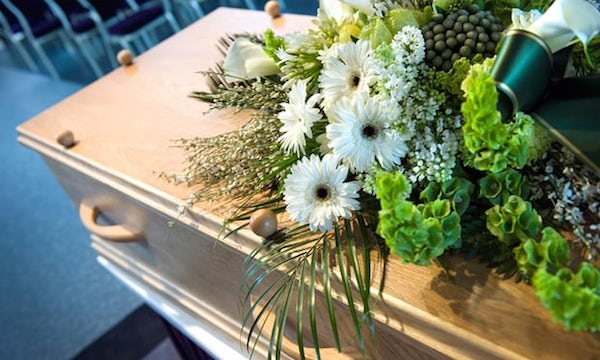Death Is A Hard Sell
 Posted by
Richard Wagner
Posted by
Richard Wagner

Death is a hard sell in our death-denying culture. Yet, each of the people I encountered recently will, in time, face the end of their life. That’s a given. The big question is; will they have the time or even the inclination to face their mortality in a way that will enrich their lives as they live it to the end? I had a very interesting weekend recently. On Saturday I attended a daylong event at a local cancer research center. The title of the program was Moving Beyond Cancer to Wellness. It was a very interesting day full of thought-provoking workshops. There was also a small vendors area. A bunch of cancer-related agencies had set up tables and on the tables they displayed their brochures for the programs and support they offer people living with cancer. There were a surprising array of support groups, exercise programs, nutritional programs spiritual programs, and the like. I thought this would be the ideal setting to network with other like-minded folks, so when I visited each of the vendors I introduced myself and proudly handed the person at the table a copy of my book. The reactions were nearly always negative or at least alarm. Once the person saw the title, The Amateur's Guide To Death and Dying; Enhancing the End of Life, the smiles that greeted me when I first approached the table soon dissolved into dismay. Their reaction to the book was as if I had handed them a dirty diaper. It was like they were going to get death cooties from just touching the book. It was immediately clear to me that bringing a book about death and dying to a cancer survival event was a huge faux pas. Despite my protestations that the work their agency was doing and the information in my book were very much alike. The only difference being their outreach is disease-specific, while my book is about mortality. I wasn’t able to convince any of them. I was so bummed out. So ok, I get it. Death is a hard sell to the disease-specific crowd. Apparently contemplating one’s mortality, even when it is staring us in the face is not the politically correct thing to do. But why is that? Facing our mortality doesn’t undercut a person’s commitment to “fighting” his/her disease process. I contend that consciously facing the prospect of life’s end really helps put our effort in “fighting” a disease into perspective. Curiously enough the reaction I got from the other participants at the Moving Beyond Cancer to Wellness event was much different from that of the vendors. I think most people who encounter their mortality through a disease process, like cancer, know, deep down inside, that this could be the beginning of the end. Why else would people react as they do when they get a diagnosis? The other participants at the event, the ones I showed my book to, had a much less phobic reaction to it. I contend that this is because they’ve already put themselves there, at death’s door, at least in their mind’s eye. And that sort of introspection can take a lot of the sting out of death. Were these other participants any more enthusiastic about taking a long hard look at their own mortality? Probably not! But then again, they weren't as resistant to the idea as were the ostensibly well people manning the vender tables. I try to imagine what things would be like if we all were encouraged to examine the end of our life as a matter of course, much in the same way as women are encouraged to do a periodic breast self-exam. I mean, examining one’s breast for lumps, or other abnormalities doesn’t increase your risk for breast cancer, right? Neither does facing one’s mortality in a conscious, upfront way hasten death. On the Sunday of that weekend I met with a young couple for their weekly couple’s counseling session. Once we were all settled in, I handed them a copy of my book. (I just love watching people’s reactions.) The young man spoke first. “That’s a bit scary.” He said after he read the title. “Scary, I mean for the people who need this book.” I replied, “I suppose it is. But do you know what’s even scarier? Not thinking about the end of life before it’s too late. I mean, are you certain that you’re not among those who need this book now? Are you certain that you will live to see the end of the year or even the end of the day?” Curiously enough, this very question, about living to see the end of the year, opened the door to a very fruitful discussion between couple. Most of their relationship problems stem from each of them taking the other one for granted. And nothing stops that kind of thoughtlessness and ingratitude faster than to have them imagine their world after the death of their spouse. Death is a hard sell in our death-denying culture. Yet, each of the people I encountered on that weekend will, in time, face the end of his/her life. That’s a given. The big question is; will they have the time or even the inclination to face their mortality in a way that will enrich their lives as they live it to the end?
